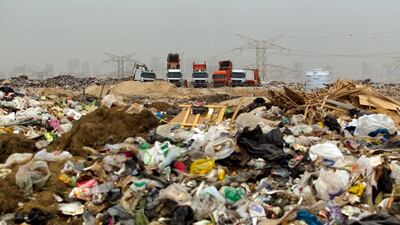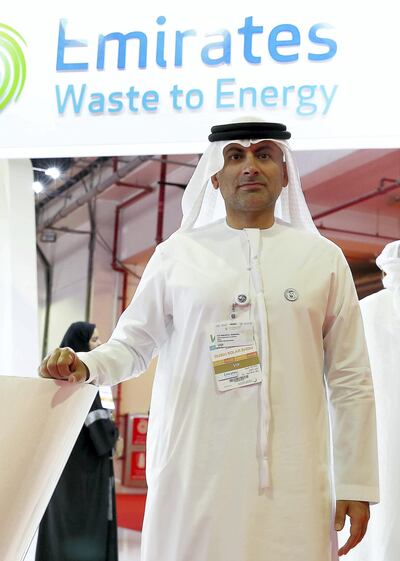A new $220 million waste-to-energy plant in Sharjah is being heralded as a turning point in the UAE’s battle to reduce waste levels.
The plant will be managed by Emirates Waste to Energy Company, a joint venture formed by Masdar and Bee’ah last year.
The centre, which is expected to be operational by 2020, will process more than 37.5 tonnes of municipal solid waste an hour by burning it to generate electricity.
Municipal waste is everyday household rubbish including food and kitchen waste, paper, cardboard and glass.
With its rapid growth, the UAE has one of the highest per capita waste generation rates in the world. The average person in the UAE generates about 2.7 kilograms of waste every day, compared with 1.2kg in Europe.
_______________
Read more:
New UAE database to track hazardous and non-hazardous waste
Population growth causes dramatic increase in waste production
UAE working hard to reduce waste
_______________
The figure almost doubles in Ramadan, because restaurants tend to produce more food than is necessary for iftar buffets.
“The region needs a sustainable way to reduce municipal waste,” said Yousef Al Ali, director of business growth with Masdar, Abu Dhabi’s green energy company.
“Waste energy technology is already implemented in many other parts of the world and it is more than suitable for this region as well.”
Mr Al Ali said it was huge growth of the UAE's cities that enabled the region to reach the point where it could embrace waste energy. "It used to be the case that cities were much smaller and you had a lot of empty land that was being used for landfill," he said.
“This was land that could not really be used for anything else, such as agriculture.
“The growing cities reduced the amount of available land and meant we had to find a sustainable solution to waste.”
Mr Al Ali said that the amount of waste being produced in the UAE had got to the point where it was no longer an avoidable issue.
“People had to start paying for the waste they were producing,” he said.
Landfills might have been regarded as a cheaper option but less landfill space is available now.”
Khaled Al Huraimel, chief executive of environmental management company Bee’ah, said the site would be a significant contribution to reaching the UAE’s target of diverting 75 per cent of its solid waste from landfills by 2021, and Sharjah’s goal of sending no waste to landfill.
“This project is a testament to the growth of innovation and creativity in the commercialisation of the energy market in the UAE,” Mr Al Huraimel said.
He said it offered “renewed optimism regarding the UAE’s ambition of deriving 27 per cent of energy needs from clean sources by 2021”.
“This transformation of energy systems will also lead to a higher quality of life in our region – a vision that Bee’ah is highly invested in pursuing.”
Mr Al Huraimel said the plant would make Sharjah the first city in the Middle East to send no waste to landfills by 2021.
Bee’ah collects about three million tonnes of waste from across the UAE every year.
In the past year alone, the company has processed more than 1.7 million tonnes of waste just in Sharjah.
The highest contributor to this amount was municipal solid waste, which was closely followed by construction and demolition waste.
“Thanks to our specialised recycling facilities, we have been able to process most of this waste and divert it away from the landfill,” Mr Al Huraimel said.



